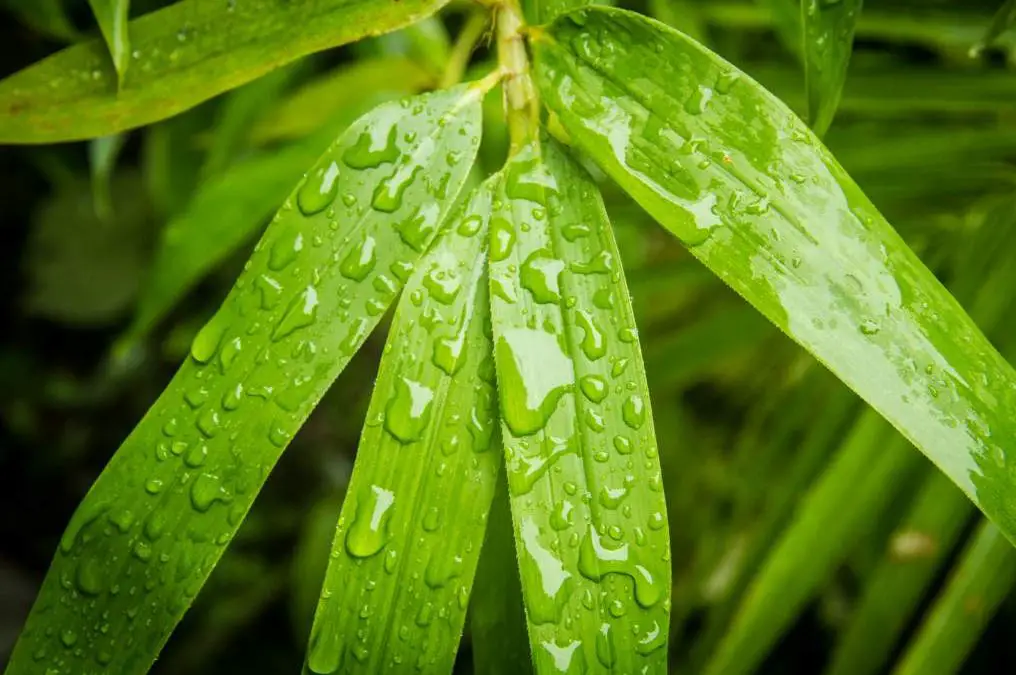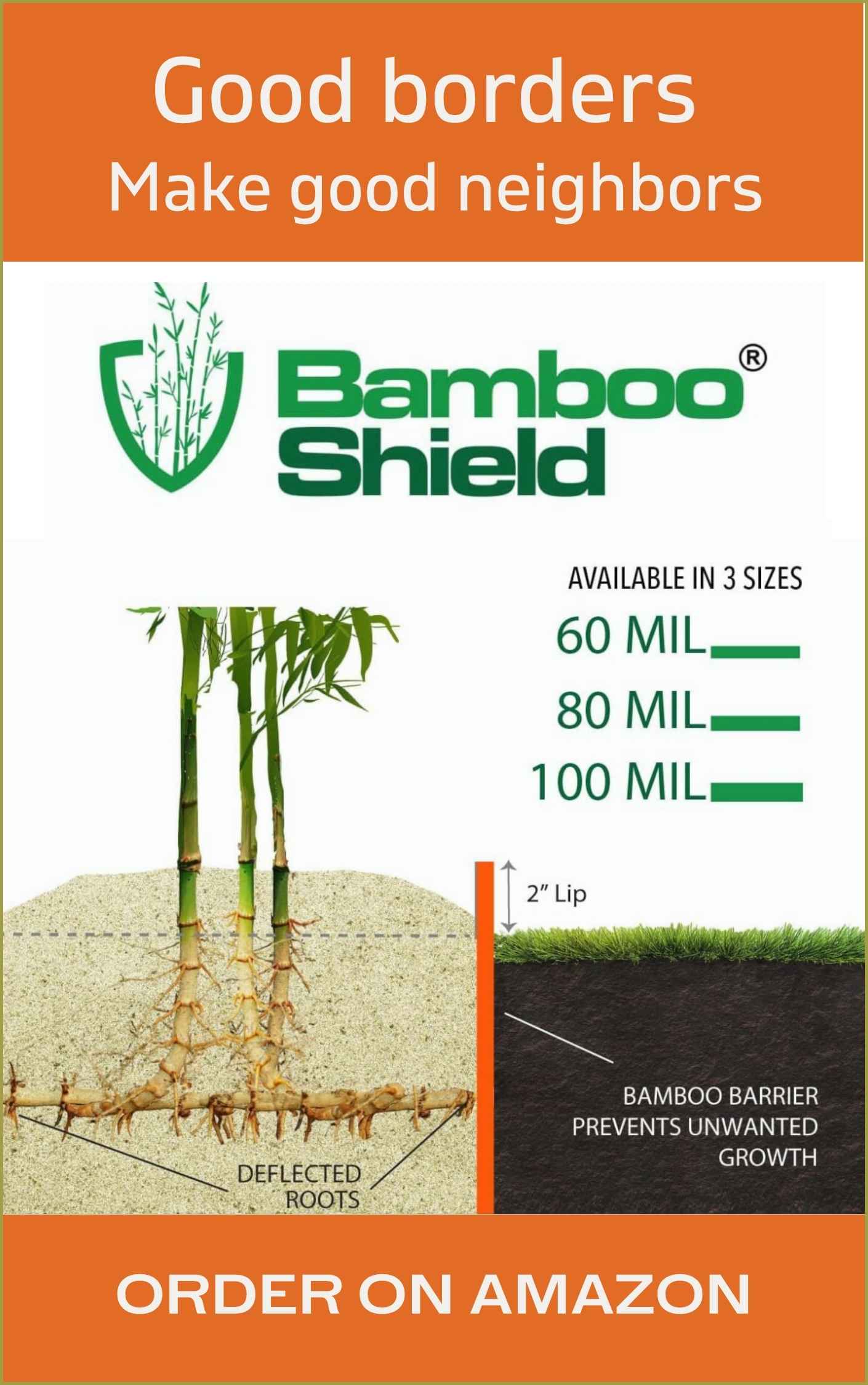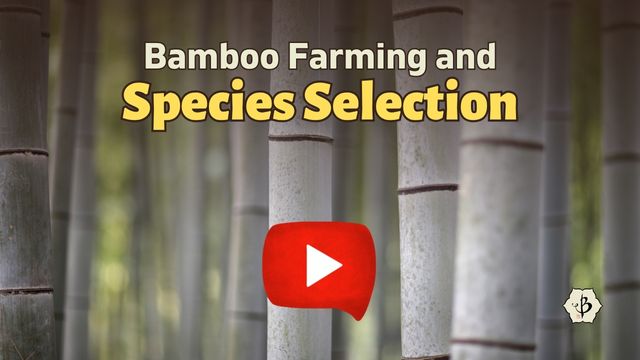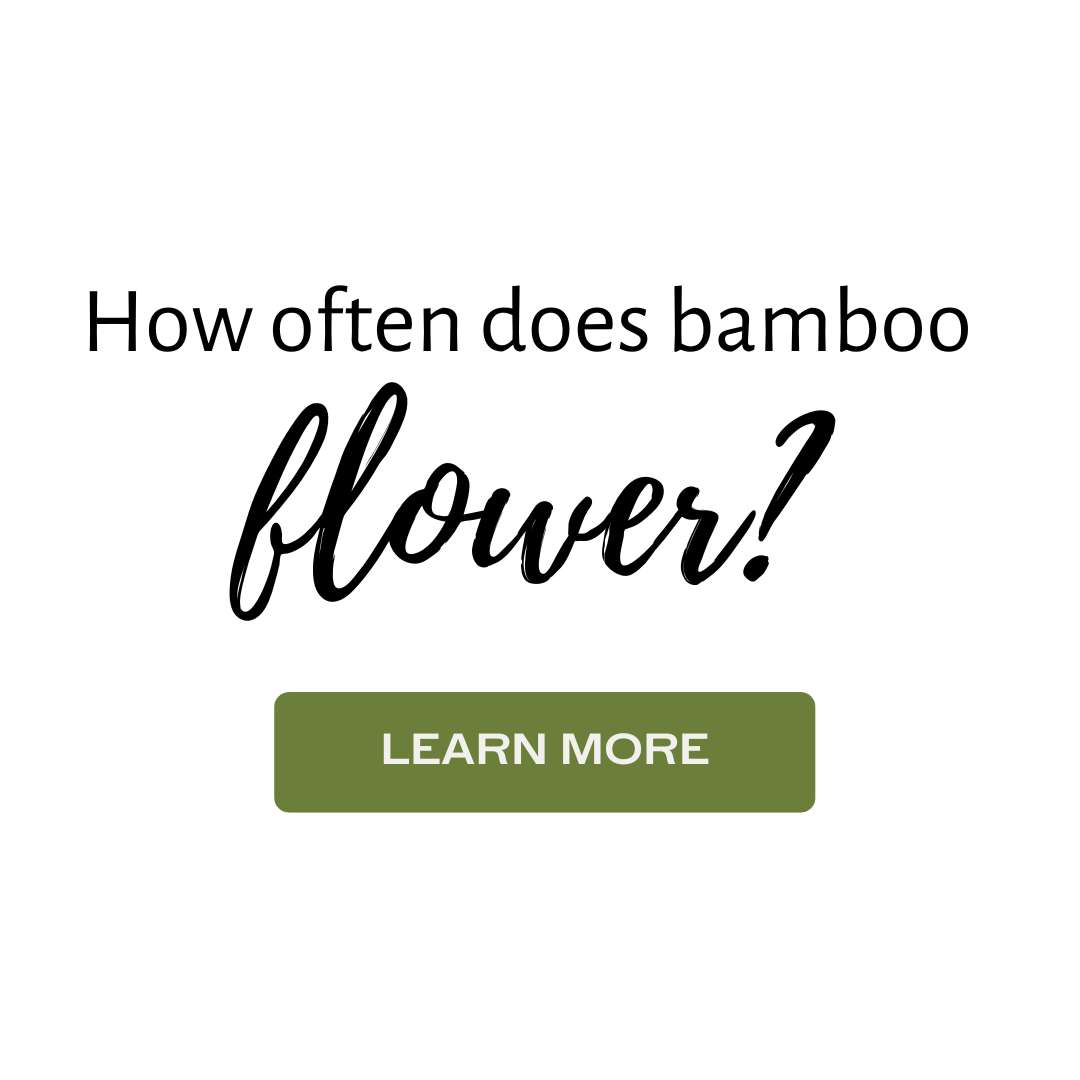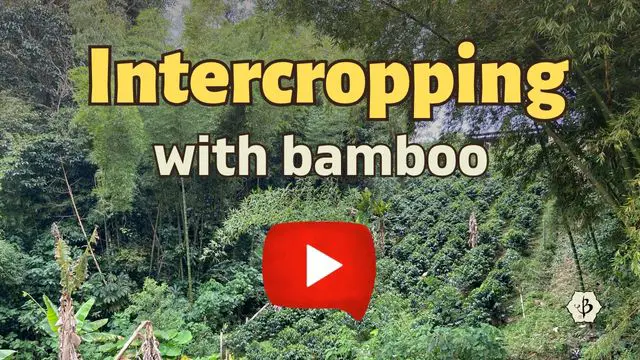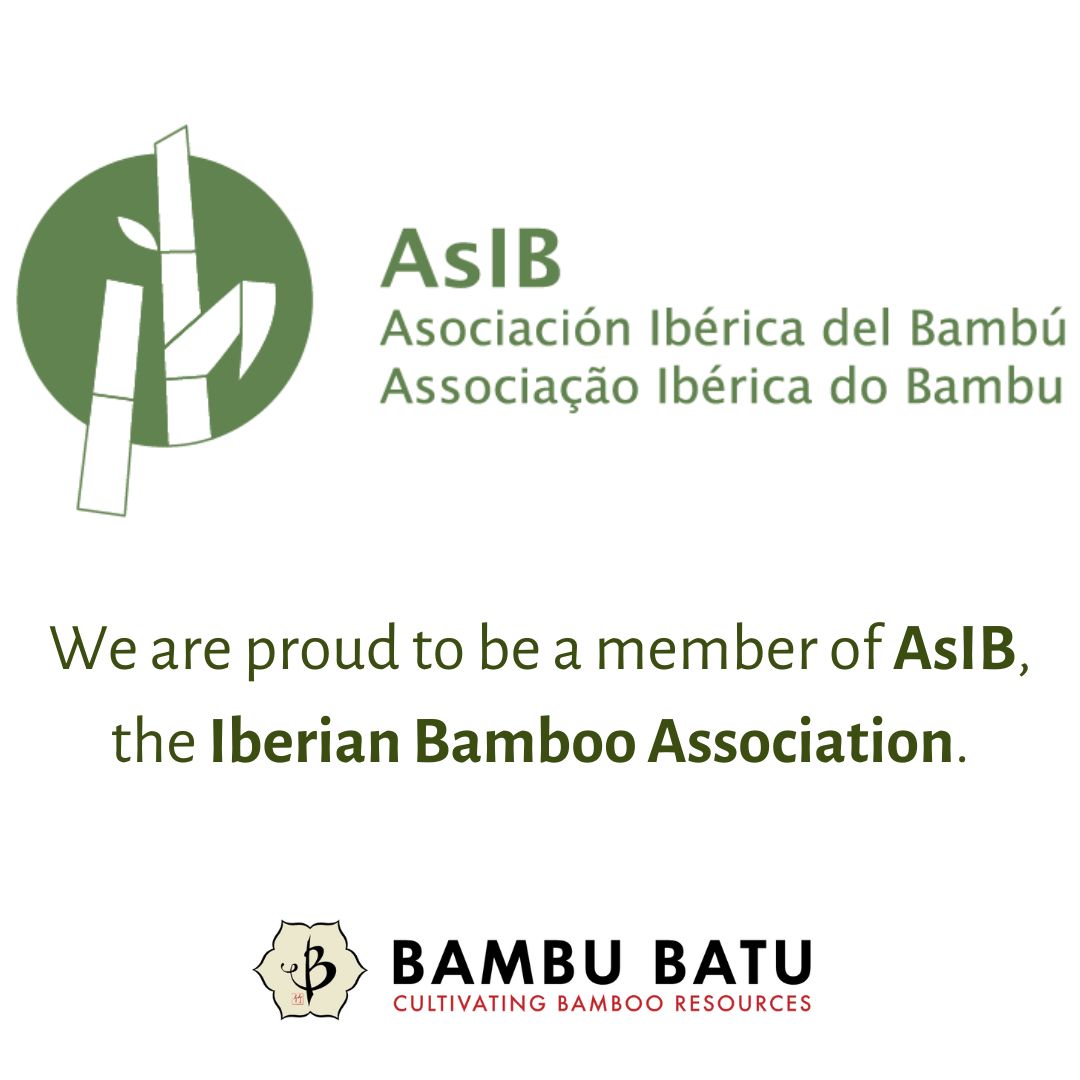The escalating impact of climate change is forcing many of us, especially in the drier climates, to reconsider how we use and conserve our water resources. Many homeowners are replacing their lawns with stones and succulents. Those with a bit more ingenuity are reconfiguring their plumbing to recapture gray water and irrigate their gardens. For those who love to keep their grass and bamboo green throughout the summer, gray water is an excellent option.
Nature’s best water filter, bamboo is an incredibly resilient plant that can thrive in poor soil and is ideally suited for taking gray water, the untreated runoff from sinks, showers and washing machines. The shallow roots of bamboo require fairly regular irrigation, so it’s environmentally sensible to use recycled water for that purpose. Furthermore, bamboo’s dense network of rhizomes is very effective at phytoremediation, the process of using plant matter to filter water and remove organic and inorganic contaminants.
NOTE: This article first appeared in June 2021, most recently updated in June 2024.
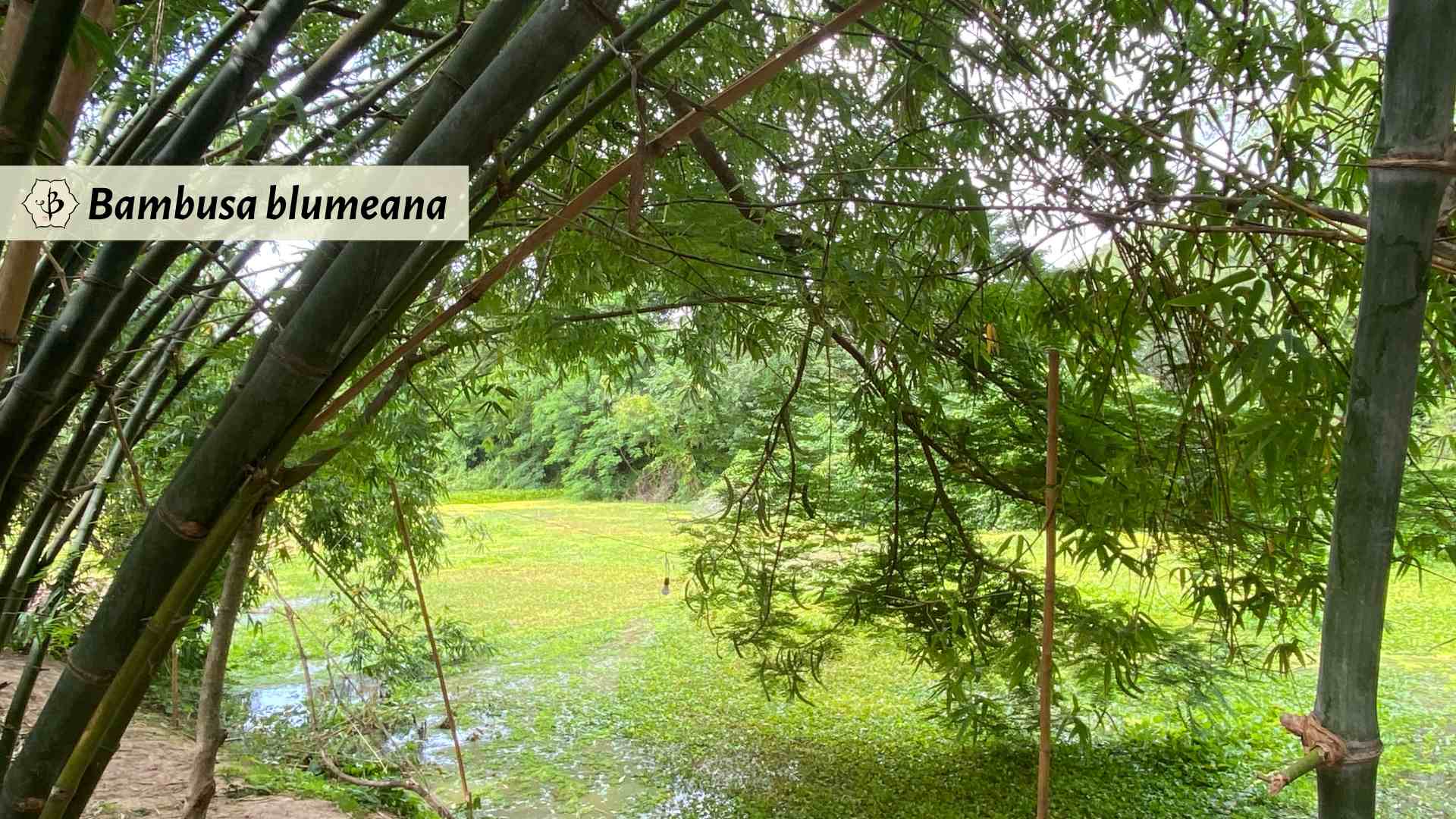
What is gray water?
Gray water (or grey water) refers to the untreated excess water that drains from your sinks, showers, dishwashers and washing machines. It can also include some organic, non-toxic effluent from the food industry. This water has been already used and is not suitable for drinking. But generally speaking, it’s fine for irrigating farms and gardens.
We call it gray water to distinguish it from black water, which is the highly contaminated water from the toilet that contains toxic human waste. This water should not be used in the garden, as solid human waste is capable of carrying dangerous bacteria like E. coli.
Ordinarily, household plumbing does not differentiate between gray water and black water. All used water goes down the drain and ends up heading to the same septic tank or wastewater treatment facility of your local municipality.
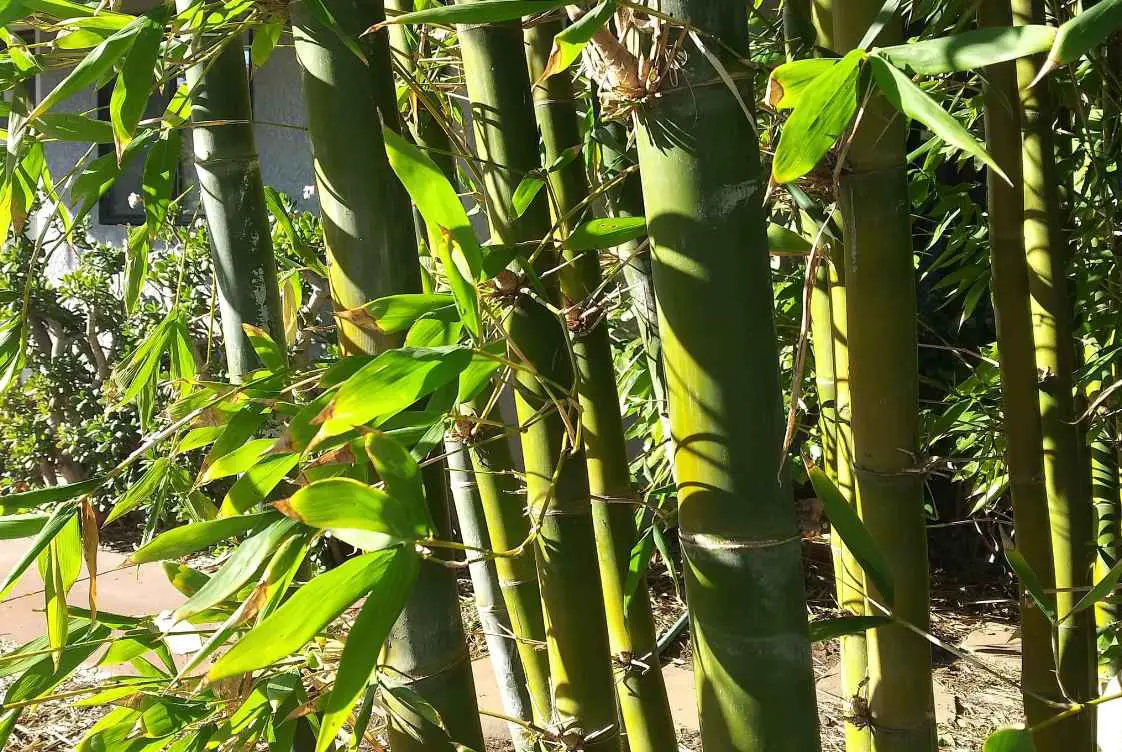
Recycling your gray water
If you hire a plumber, or you’re fairly handy yourself, you can separate the pipes and redirect your gray water into your garden. Normally, you can do this with any outgoing water except the toilets. The greatest quantities of household gray water usually come from the washing machine and the dishwasher.
If your gray water is going into a vegetable garden or to irrigate any other plants meant for human consumption, you should be very careful about what sort of soaps and detergents you’re using. Look for something natural and biodegradable.
But even if you’re just watering ornamental plants, you don’t want to deposit chemical suds into your soil and groundwater. So I’m a big fan of Seventh Generation products, which you can easily order from Amazon.
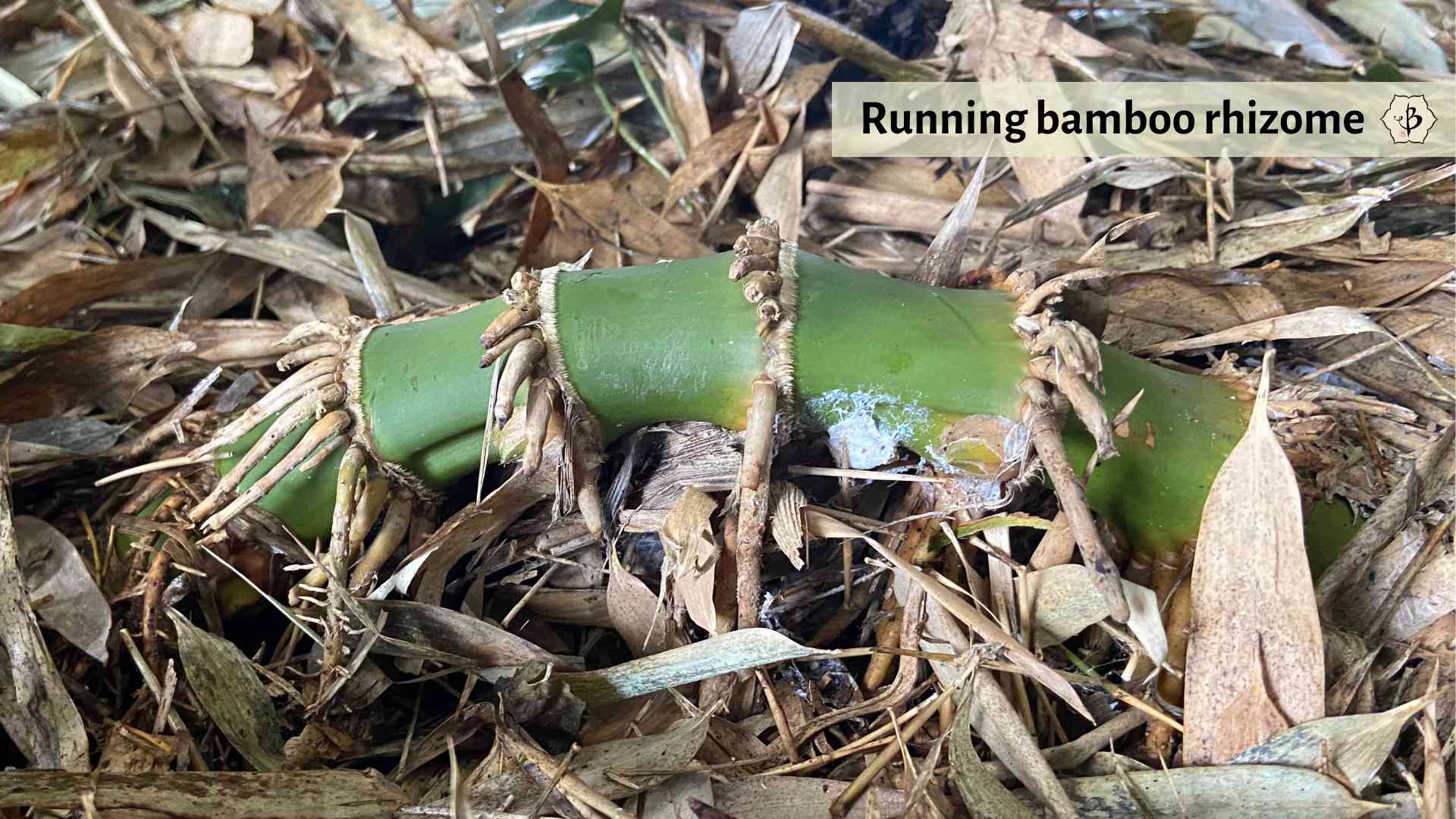
Bamboo as a natural water filter
Because of its dense underground rhizome system, bamboo is especially well-suited for phytoremediation. This is the natural process by which plant tissue absorbs contaminated water and removes, stabilizes or destroys certain harmful substances.
Therefore, if you are flushing conventional soaps into the gray water and directing it into the garden, bamboo should be the first stop. You might, for example, have a hedge of bamboo running along the highest end of the garden. You can feed the gray water into the bamboo, and let it percolate through the roots and soil. From there, the water, now significantly cleaner, will trickle down into the other plants.
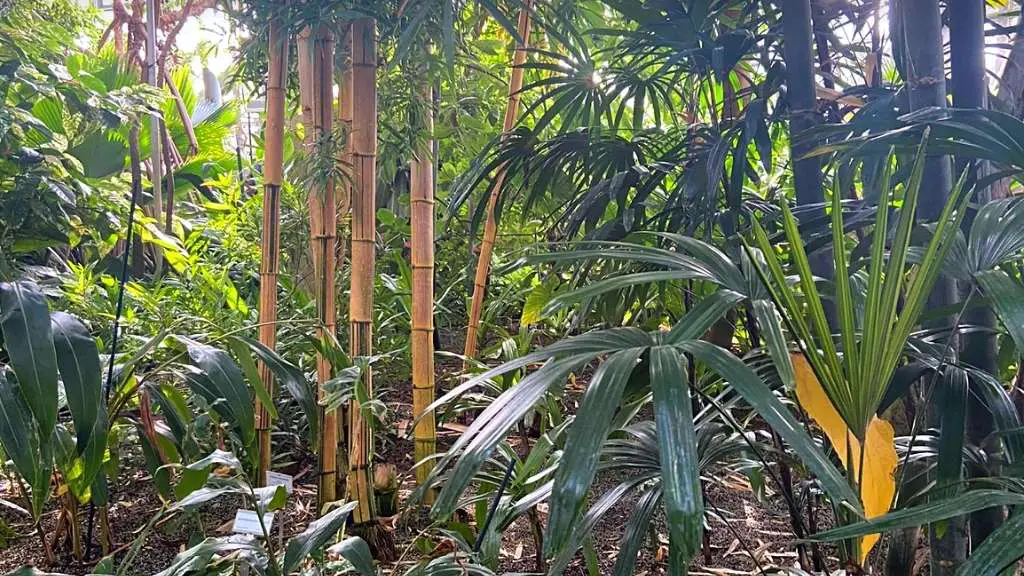
French bamboo for industrial phytoremediation
In France, an EU-funded project called Briter-Water has established multiple bamboo groves to serve as natural water filters for food industry effluent, or runoff. Phytorem, a French company, implemented the first such water treatment facility outside of a Délifruits factory in Valence, southwest France, in 2013. The 1,500-square-meter test plot proved to be a great success, removing 99% of organic waste from the water. In this case, the gray water coming from the soft drink manufacturer does not contain any sewage or toxic chemicals (which would classify it as black water).
Scientists attribute this project’s success to bamboo’s robust and tightly woven rhizomes. The plant is also very hardy and resilient. And best of all, unlike other wastewater facilities, the bamboo grove blends in beautifully with the surrounding landscape. Ultimately, after passing through the bamboo fields, the water returns to the ecosystem without posing any danger. Phytorem has since gone on to set up at least four more similar bamboo groves around the country.
Meanwhile, on the French island of Reunion, in the western Indian Ocean, scientists have planted three fields of bamboo as test plots for treating the highly polluted runoff from pig farming. Bamboo again proved effective at removing nitrates from the soil. Furthermore, the pig slurry provided a rich fertilizer for the bamboo, increasing both the growth rate and the biomass production. Results of the study suggest that, of the several bamboo species used, Bambusa vulgaris and Bambusa oldhamii responded best to the application of pig slurry.
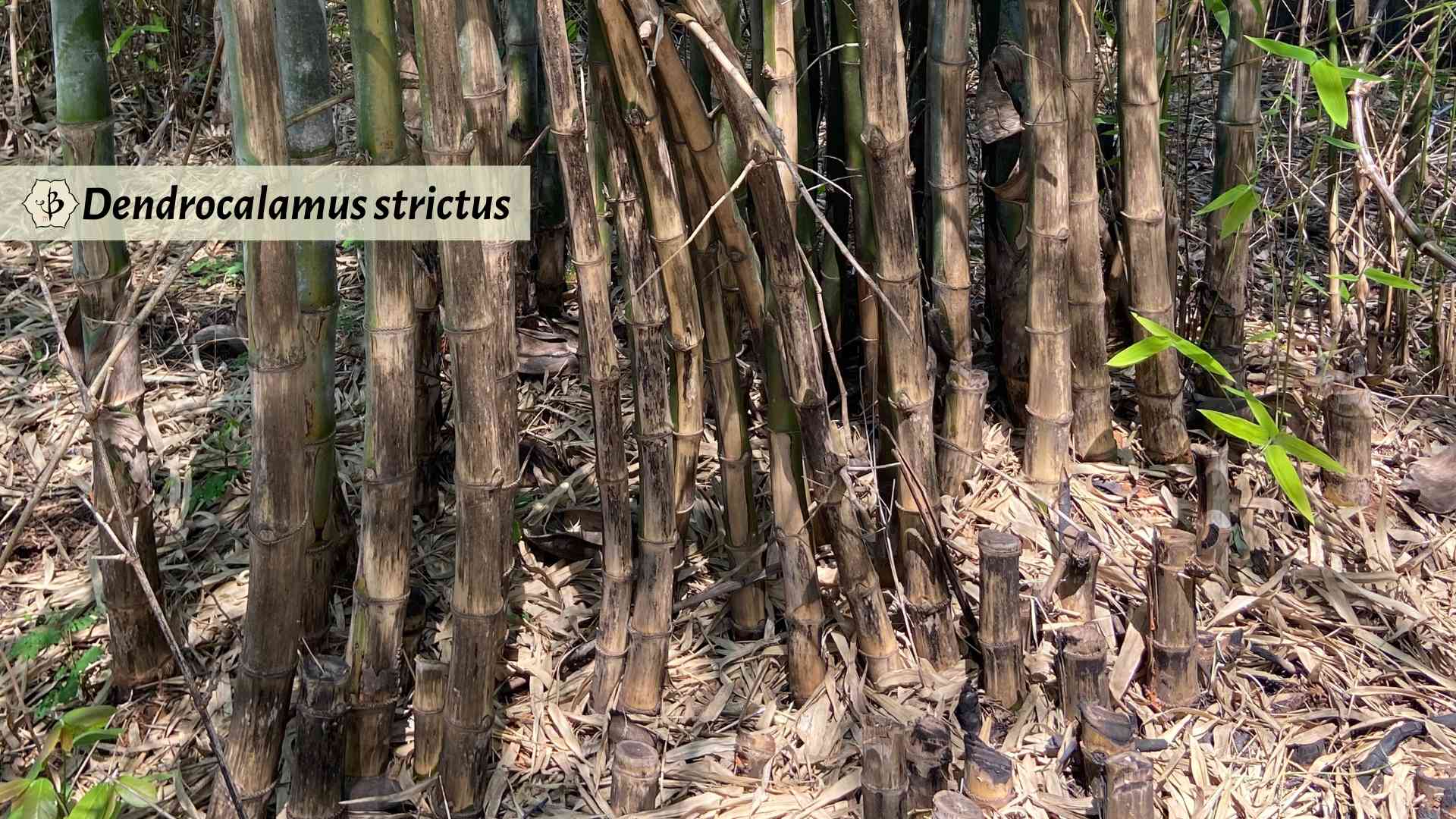
A hyperaccumulator
Recent research also indicates that some species of bamboo have the capacity to remove heavy metals from the soil. Bamboo’s dense fibers, the same property that makes this grass resemble a hardwood, can absorb large amounts of toxicity. We call these kinds of plants “hyperaccumulators”.
Bamboo is one of very few plants that is both fast-growing and a hyperaccumulator. This combination makes it an ideal choice and a valuable tool for cleaning contaminated soils. In Vietnam, researchers are looking into the use of bamboo to restore and rejuvenate areas of land that were denuded and polluted with defoliants like Agent Orange during the war. Further research is needed to determine which species of bamboo are the most effective for this purpose.
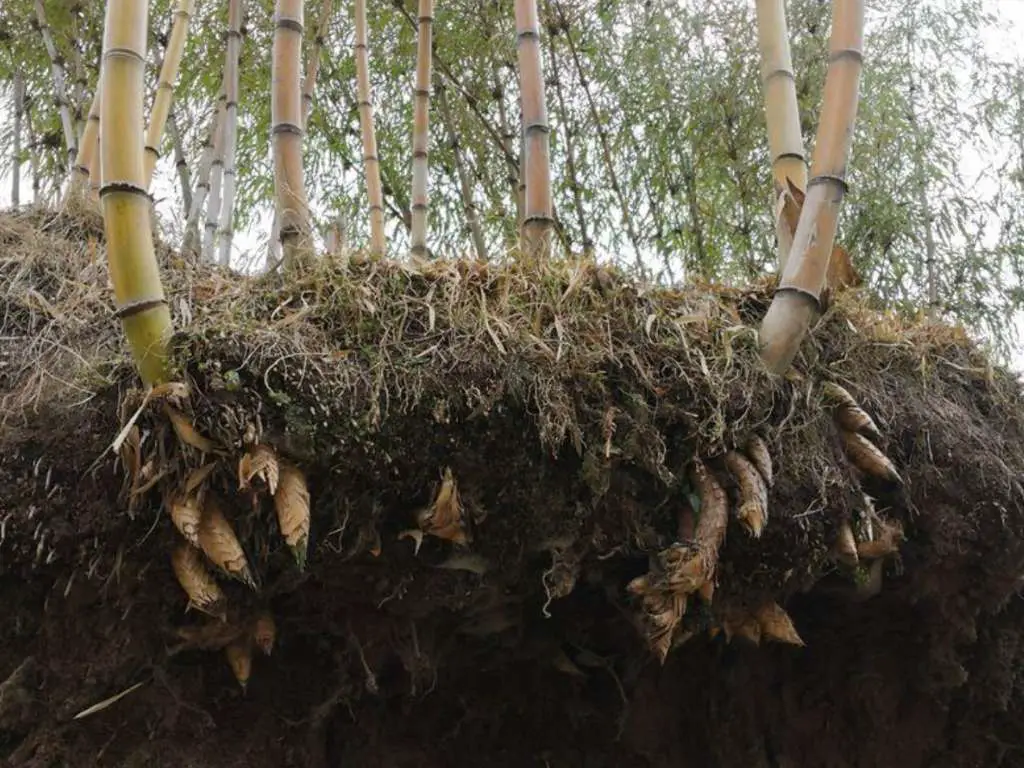
Further reading
If you found this article about bamboo and gray water useful and insightful, you might also take a look at some of our other in-depth blog posts.

